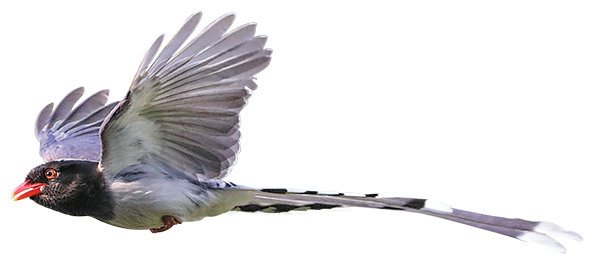
Red-billed blue magpie. [Photo by Yao Bo/For China Daily]
It was as though Yan Jun had been confined to a bird cage, feeling absolutely frustrated as he remained isolated at home when COVID-19 broke out early last year.
The strange thing is that normally a bird cage might be a place of choice for Yan, in his 50s-as long as a few birds were sharing his confinement. For he is chairman of the Wuhan Bird Watching Association, which initiated a program of observing birds in and around major rivers, lakes, forests, farmlands and greenbelts across the city a little more than five years ago.
The purpose was to study the distribution and movement of bird species.
However, the pandemic put a halt to that three-and-a-half year effort.
"The monitoring needs to be conducted for at least 10 years to produce data that can truly reflect the changes of the endemic birds," Yan says.
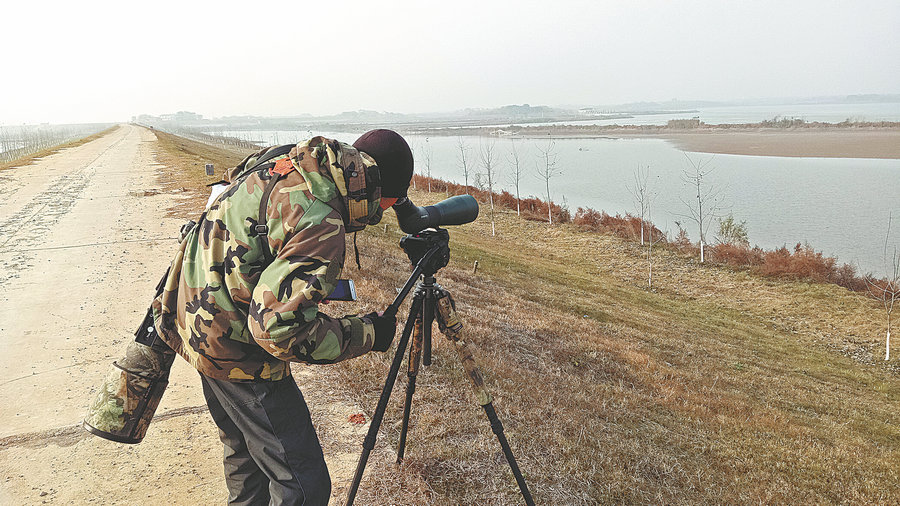
Observations that professional bird watcher like Yan Jun can make are really limitless. [Photo provided to China Daily]
In addition to observations ceasing, most members not only became terribly bored during the lockdown but also became anxious about this project that had become so dear to them. That was when Yan came up with this genial idea: home confinement did not mean bird watching needed to be off the agenda, because members could treat their homes as something akin to a bird's nest high up in a tree and from there observe and report on any birds they spotted around their homes.
"They had tons of time on their hands and nowhere to go," Yan says.
"I thought it might help them tide over the time at home while picking up some of what we were not doing."

Great crested grebe. [Photo by Yan Jun/For China Daily]
However, Yan's proposal received a lukewarm response, with only about 20 of the association's members, of whom there are 100 or so, picking up on the idea.
Many worried about possible repercussions from the pandemic and were in no great mood to do anything at all.
However, as COVID-19 was gradually brought to heel, more members volunteered to join in.

Observations that professional bird watcher like Yan Jun can make are really limitless. [Photo provided to China Daily]
One member, Hao Lijuan, says she did not understand Yan's proposal at the beginning.
"I was like, 'Do they not realize what's happening?'"
In those uncertain times, Hao says, she was too concerned about her family to consider taking part.
But her worries evaporated when she checked through the online group discussion and messages relating to the birds that had been spotted. "My worries kind of disappeared in flash as I looked over the chat content," Hao says.
Influenced by her peers, she then stepped out into her balcony, and away she was again, watching birds.
"It was raining a lot during the stay-at-home period, which sort of added to being depressed, but when I saw two spotted doves spreading their wings and enjoying a baptism of rain on a power pole it was like an epiphany.
"I thought, 'They're enjoying their time no matter what the weather is, so why shouldn't we?'"
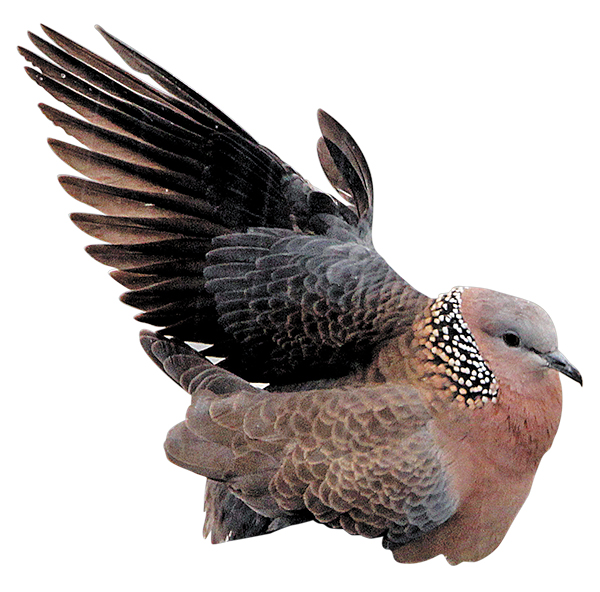
Spotted dove. [Photo by Hao Lijuan/For China Daily]
Pictures that Hao sent to the group of the beautiful postures of the birds in the rain attracted many positive comments.
Other members became very active in the group chat and in posting messages and pictures, to the extent that there seemed to be some kind of competition among members to come up with the best observations.
Yan says that through observing birds at home he gained a new perspective on his own living space. He found birds moved about unrestrained in public spaces normally occupied by humans.
The egrets that had been mostly found around a paddy field were strolling by the pond of the residential community, while the timid Chinese bamboo-partridge came out of the bushes to public footpaths.
"It was like we gave way to those birds," Yan says.
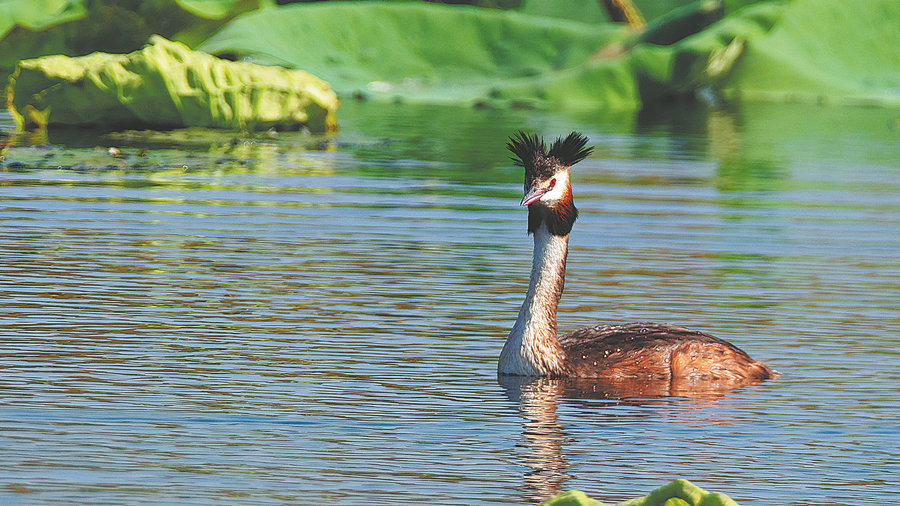
Great crested grebe. [Photo by Yan Jun/For China Daily]
He saw magpies flying up to a 28th floor, spotted doves courting one another on the treetops of the community park, a red-billed blue magpie pecking at the tender buds of purple leave plums.
"Maybe they had been in hiding here all the time, or we just didn't pay attention to things right under our noses."
Yan saw more than 20 kinds of birds around his home during the lockdown period in Wuhan.
"It was just interesting to see what they were doing and what their habits were."
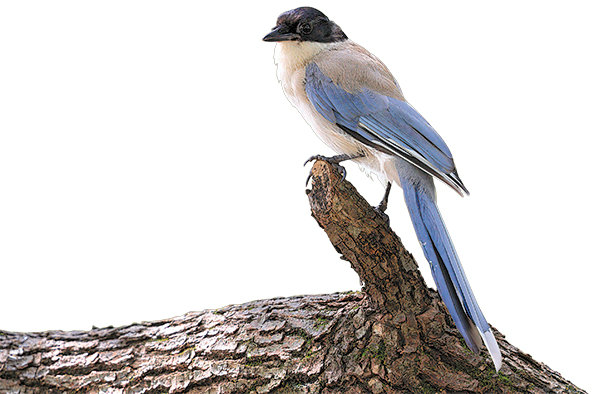
Azure-winged magpie. [Photo by Hao Lijuan/For China Daily]
Some of the club members live very high up in buildings, which made it difficult to zoom in on small birds on the ground. Some have small windows that confine the peripheral view.
Yan himself also went to great lengths to watch birds.
Before the pandemic his habit had been to watch birds at a lake about 1 kilometer away from where he lives.
"I missed that place very much," he says.
He then tried various places near windows and on his balcony to explore the best angle to see the birds.
To his joy, he found the ideal place in his bedroom window, where he mounted a telescope and looked through the gap between the tall buildings and a low house in the distance. It provided a good view of the lake.
"I had lived here for almost four years and never thought of watching birds at the lake from home," he says. Yan says he spent two to three hours a day watching birds from different windows of his apartment.
In these difficult, frustrating times, watching birds turned out to be great diversion therapy for him and the other members.
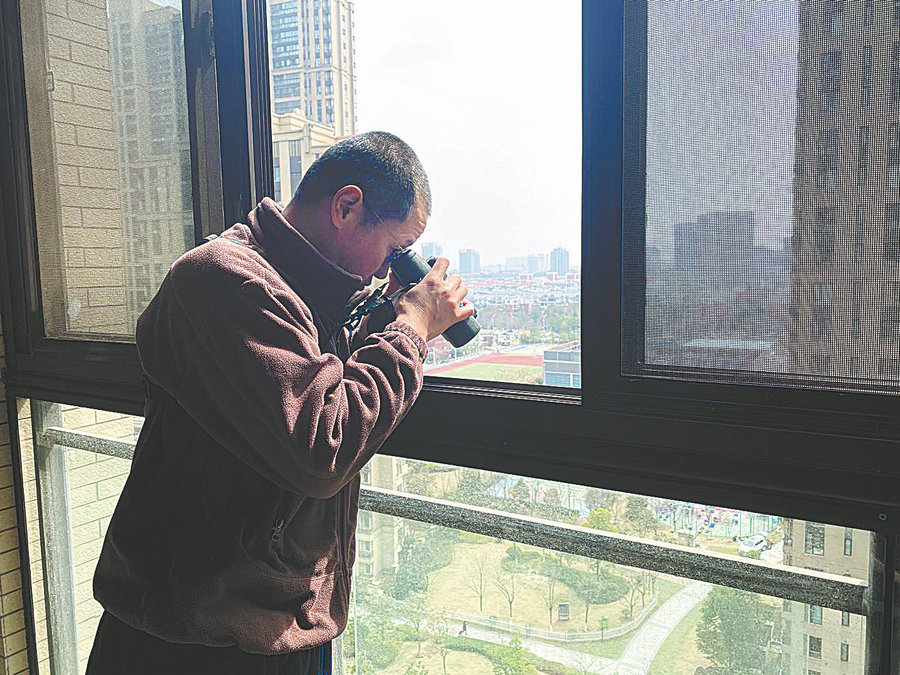
Observations that professional bird watcher like Yan Jun can make are really limitless. [Photo provided to China Daily]
"What's great about bird watching is that it can calm your mind just when you're at your worst," Yan says.
Yan is a financial investor, which makes one feel tense most of the time, he says, but once he watches birds, all his worries slip to the back of his mind.
"Most of us live fast-paced lives and face great pressures, but once we return to normal living after having indulged in nature and come back, it turns out that things we worry so much about are really not that important at all.
"I guess you could say bird watching has restored my mental peace and made me whole again."
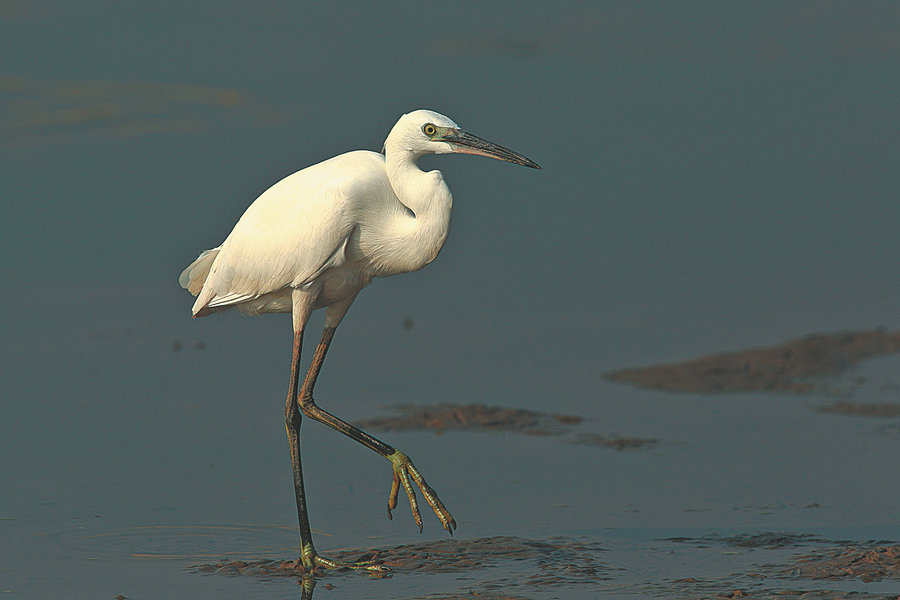
Egret [Photo by Yan Jun/For China Daily]
Over the two months the members found 50 species of birds in their residential communities.
According to A Checklist on the Classification and Distribution of the Birds of China published by the Science Press there are 1,445 species of birds in China, of which 430 can be found in Wuhan.
Yan is happy that he lives in Wuhan, which abounds with wetlands. "There's water in a 1-2 kilometer perimeter of our homes. It's the vegetation that goes with it that attracts the birds."
With the data that Yan and other members collect, he compiles an urban birds observation report.
The most pleasant surprise that came from watching birds at home was that once COVID-19 had been eradicated in the city, club members had rekindled their enthusiasm in their hobby.
Hao says she used to focus mostly on the grace with which birds move, but her observations from home allowed her to look more at the differences between various species.

Kingfisher. [Photo by Yan Jun/For China Daily]
Some species look very similar to one another, so a significant amount of experience is needed for a bird watcher to be able to tell which bird is which.
Hao discovered the 428th bird species in Wuhan in May last year, and she is now out watching birds more frequently than ever.
"I used to restrict my bird watching mostly to good weather, but these days even if it's raining I'll go out and observe them, as long as I have the time."
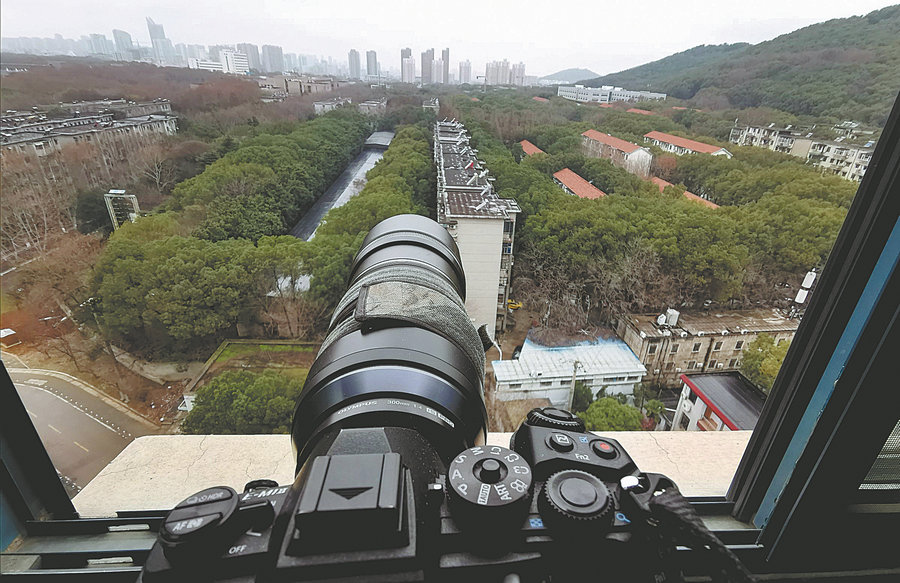
Home confinement does not mean bird watching needed to be off the agenda. [Photo by Yan Jun/For China Daily]

